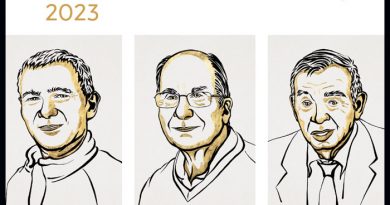Inflation data pressures Wall Street shares, offsets U.S.-China optimism
WASHINGTON/LONDON (Reuters) – Global share markets rose and Wall Street reversed early gains on Friday following data showing persistent U.S. inflation, which eclipsed expectations of an easing in U.S.-China tensions after a call between President Joe Biden and China’s Xi Jinping.
U.S. producer prices increased solidly in August, indicating that high inflation is likely to persist for a while, with supply chains remaining tight as the COVID-19 pandemic drags on.
“Headlines reflecting the highest annual producer price increases in decades won’t give those worried about inflation much comfort, but the smaller month-over-month increase and recent evidence indicating supply chain bottlenecks are no longer intensifying suggest a peak in producer inflation may be near,” said Marc Zabicki, Director of Research for LPL Financial.
The Dow Jones Industrial Average fell 73.07 points, or 0.21%, to 34,806.31, the S&P 500 lost 5.99 points, or 0.13%, to 4,487.29 and the Nasdaq Composite dropped 9.05 points, or 0.06%, to 15,239.20 shortly after noon ET (1600 GMT).
Earlier in the session, global equities markets gained after news that the U.S. president and his Chinese counterpart spoke for 90 minutes on Thursday in their first talks in seven months, discussing the need to avoid letting competition between the world’s two largest economies veer into conflict.
That helped China shares rise 0.08%, giving a fillip to the region and lifting MSCI’s World index, its broadest gauge of global stock markets 0.07%, on course to end a three-day losing streak.
Despite the gains, helped by a similar performance across Europe’s top markets, the index remains down 0.6% on the week and on course for its first drop in three, albeit hovering near a record high.
The pace at which central banks, especially the U.S. Federal Reserve and European Central Bank, choose to trim their economic support remains the driving force of market sentiment amid rising inflation concerns.
Thursday’s move by the ECB to trim its bond purchases, albeit only slightly, is expected to be followed by the Fed later this year, according to some officials, despite a weak August U.S. jobs report.
“With the ECB raising its economic projections for 2022 and beyond, it appears that the high-water mark in policy accommodation has been passed,” said Mark Dowding, chief investment officer at BlueBay Asset Management.
Looking ahead, Dowding said next week’s U.S. inflation print could help dictate near-term market direction.
Despite the prospect of stimulus packages being reined in further in the coming months, Mark Haefele, chief investment officer at UBS Global Wealth Management, said he expected central banks to remain supportive of growth and keep interest rates low.
“This is positive for equity markets, particularly cyclical and value areas of the market. And while this complicates the search for yield, we continue to see opportunities,” he wrote in a note to clients.
“In currencies, we think going long GBP and NOK and short EUR and CHF should provide a mid- to high-single-digit percentage upside on a total return basis over the next six to 12 months.”
Against the broader risk-on backdrop, and despite persistent concerns around COVID infection rates, the greenback was down 0.03% against a basket of major peers.
The yield on benchmark 10-year Treasury notes, meanwhile, rose after the U.S. inflation data.
Among European markets, Germany’s benchmark 10-year government bond yield rose.
Elsewhere in currencies, the pound rose 0.08% despite data showing the British economic recovery slowed in July. The euro inched higher.
Oil also gained ground on signs of tight U.S. supplies after Hurricane Ida hit offshore output, with Brent crude up 1.7% and U.S. West Texas Intermediate crude at $69.29 a barrel, up 2%.
Gold was 0.4% higher.
Source: Read Full Article


